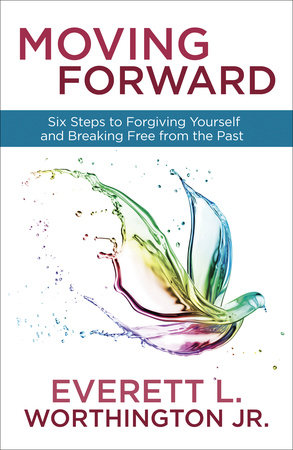READERS GUIDE
Taking Your Own Steps
This guide is designed to help you continue your journey of forgiving yourself. Keep a notepad nearby so you can write down your thoughts, plans, questions, and next steps.
1. Everett L. Worthington Jr., writes that it is more difficult to forgive yourself than to forgive others. How do you feel about his
statement?
2. The author shares in detail his deepest regrets over his relationship with his late brother. How important is it to be this transparent about your failures? Would you agree this is a necessary step in the process of self-forgiveness?
3. It is natural to condemn yourself for your words and actions that hurt others. In your struggle with self-condemnation, has God appeared to be more often a helper and comforter or a judge? Do you believe God can help you change self-condemning patterns? What assumptions and habits have you identified that prevent God from helping you let go of self-condemnation?
4. You begin to forgive yourself when you make a firm decision to do so. Write down your commitment to do this, then tell someone you trust about your decision. (This person can serve as an accountability partner.) It also helps to write your decision on a card and post it where you will see it regularly. Are you ready to take this step?
5. Clear away major obstacles by first seeking divine forgiveness. List the ways in which you have wronged others, yourself, and God. Also include things you should have done but failed to do. Next, pray to God, seeking God’s forgiveness for each of the things you have written down.
6. If you have confessed to God the words and actions that give rise to your self-condemnation, as well as the failures to act, consider 1 John 1:9. If you confess your sins, God is faithful and just to forgive your sins and to purify you. Can you accept God’s forgiveness? If not, why not?
7. After you have received God’s forgiveness, consider whether to go to those you have wronged, if that is possible and if it would not lead to further harm. Choose one wrong you are dealing with. Write a good confession and practice saying it aloud. (However, if making this confession to the wronged party would harm that person further, you need to confess to God alone or to a trusted person such as a pastor or your spouse. The same is true if the person is no longer living, cannot be located, or has refused to listen to you.) Do you want to confess to the person?
8. If you decide to confess to the person you harmed, are you ready to do so? If not, why not?
9. Is restitution appropriate? Think of reasons it would be helpful to make amends to the wronged party for what you did or said that was harmful. If it’s possible and appropriate, what would be meaningful restitution in this instance? It might be best to ask directly, “What can I do to make up for what I have done?”
10. If you have made things right with God and have done what is possible, advisable, and safe to make things right with others, you can forgive yourself. If you have made that decision, write it down. This is what the author calls “decisional self-forgiveness.” It is an essential step toward finding peace. (To experience complete emotional self-forgiveness, continue to work through the following questions. It is possible to replace negative emotions toward yourself with positive emotions.)
11. You can replace negative, unforgiving emotions with empathy, compassion, and love. This is not easy, as you already know. You are the offending party, so you are doing this work to forgive a wrongdoer—yourself. To help you succeed, seek the help of people who know you well and who love you. Write down the names of three close friends or trusted advisors who will help you. (To work fully through the five steps of emotional selfforgiveness captured in the acronym REACH, go to chapter 16
of this book.)
12. Which is stronger, your sinfulness or God’s grace? Write a brief description of a time you experienced the impact of God’s grace through your entire being. How can you rely on the power of God’s grace in times when you realize you are slipping back into patterns of self-blame, condemnation, and lack of self-acceptance?
13. The author says that self-acceptance can be harder than forgiving yourself. Is this in line with your experience? Can you accept yourself as deeply flawed in a fundamental way and yet know that God loves you very much and thinks you are precious?
14. Because God loves you, you might want to try to be even more dedicated to honoring God through virtuous behavior. Would you like to dedicate yourself to some specific virtue right now? You can write yourself a commitment just below.
15. Has God set you free from the prison of some of your past as you worked through these six steps to self-forgiveness? If so, have you expressed your gratitude?

